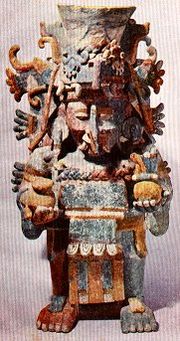The news from Los Angeles is that everything old is new again.
The 14-year effort to establish an urban farm in the heart of South Los Angeles came to an end today when authorities evicted the farmers, as well as some celebrities who were supporting them by keeping vigil on the land.
The eviction occurred during a frenzied day both at the farm site and at City Hall as Mayor Antonio Villaraigosa and other city leaders negotiated with the landowner through the morning, failing to reach a deal to save the farm even though the mayor said they had come up with the owner’s $16-million asking price
… About 50 deputies arrived at the property about 5 a.m. and used bolt cutters to remove locks and gain access to the 14-acre property near 41st and Alameda streets. At least a dozen people had remained inside the farm, some chained under trees and others locking hands around 55-gallon drums filled with concrete. At least 40 people were arrested at the site.
… After the 1992 riots, the city leased the land to the Los Angeles Regional Food Bank, which began the community garden. In 2003, the city sold the land back to Horowitz for about $5 million.
… The site has a contentious history. The city acquired the land from Horowitz through eminent domain in the 1980s for a planned trash incinerator, but the project was stopped by neighborhood opposition.
After the 1992 riots, the city leased the land to the Los Angeles Regional Food Bank, which began the community garden. In 2003, the city sold the land back to Horowitz for about $5 million.
But the farmers did not leave. In the last three years, and particularly in recent weeks, the farmers have pleaded to stay despite Horowitz’s plans to sell the land for development.
— Hector Becerra, Los Angeles Times (2006-06-13): Farmers, Celebrities Evicted From Urban Plot
The Times’s story has a major defect: it seriously distorts the history of the title to the lot, and dramatically overstates Ralph Horowitz’s personal claim to the land prior to the 1985 eminent domain seizure. The New Standard‘s History of the South Central Farm has a much more accurate and detailed rundown of the site’s history, and the shady means that Horowitz used to get the city to entitle him to the land. The precis is that, some twenty years ago the city government stole some land from a group of private owners. Ralph Horowitz was a partner in a real estate investment firm that owned about 80% of the land that was stolen. The city government planned to use the land for a garbage incinerator, but abandoned the plan, in the face of neighborhood opposition, in 1987. The lot remained abandoned for seven more years, when working folks from the neighborhood set up on the unused land, established gardens and cultivated the land in the lot. Some 350 families in South Central L.A., many of them Hispanic immigrants, now grow their own food on the land. Seven years later, in 2001, Ralph Horowitz went to court to try to force the city to sell the land to him — all of it, apparently, not just whatever share had belonged to him personally when the city government took the land. After two years of legal fighting, the city government cut a closed-door deal with Horowitz, declaring him the absentee landlord in return for a $5 million pay-off. Horowitz planned to force the farmers off of his
land, so he could develop
it by tearing down the farms they had spent the past decade cultivating and putting up a warehouse on the seized land for — guess who? — good old Wal-Mart. After another three years of court fights, he has just called in the city goons to force the farmers off their land once and for all.
Here’s the Times, giving us the neo-mercantilist view of the proceedings:

Undeveloped land
Some in the community support him, arguing that the area would benefit from the jobs that would come if the land were developed.
Thanks to this textbook example of weasel-wording, we can’t single out the some in the community
for the derision they so richly deserve. But we can, at least, single out the L.A. Times for uncritically repeating the idiot notion that farmland that’s been cultivated for a decade and a half hasn’t been developed,
and for declining to mention whether the 350 families who grow their own food in their own garden are keen on sacrificing their own primary food source for the sake of jobs
to benefit
the area.
Meanwhile, the editorialists at the Times, apparently gunning for a mention in Kevin Carson’s Vulgar Libertarianism Watch
, defended the shredding of property rights in favor of Horowitz’s government-granted property entitlement. We are told that Horowitz’s actions will not qualify him for a humanitarian of the year award. But it’s still his land, and that means he can sell it to whomever he chooses.
If it were his, then of course he could use it as he sees fit, or sell it as he sees fit, or, if he wants to, sit on it and twiddle his thumbs all day. But by what right does the lot belong to him? Because he bought
it from the city government? But the city government cannot sell what it does not own; and how by what right did it belong to them? Because they stole it, fair and square?
Or is it because he used to own the land, before the city stole it from him? Well, he didn’t own it, actually — not all of it. He owned a share in the 80% of the land that belonged to his and his partners’ investment company, but his prior ownership gives him no personal claim at all to his partners’ share of the 80% of the land, let alone to the 20% of the land that did not belong to their company. And whatever share of the land did rightfully belong to him no longer does. Horowitz may very well have a legitimate claim against the city government for stealing land which belonged partly to him. Eminent domain
is theft, and Horowitz was one of the victims. But the city government cannot pay off that debt by selling
back the land out from under the people who have been occupying and cultivating the land for more than a decade. The Times, for its part, derides the fact that The main argument of the protesters seems to be that because the farmers have been squatting for more than a decade on property they don’t own, they have earned the right to stay there permanently.
But property they don’t own
could mean either of two things. Squatting on property that somebody else owns gets you no rights to the property. But squatting on property that nobody owns certainly does; how else should people gain ownership over unclaimed and abandoned lands? What gives farmers the right to stay on their farms is not the fact that they’re squatting on someone else’s land; it’s that, by squatting on an abandoned lot, they became the rightful owners — the city and Horowitz’s piratical agreements over how to divvy up the booty notwithstanding.
So it goes — another robber baron manages to destroy whatever good things working folks in South Central L.A. have managed to build for themselves, and pays a few million to hire the city’s goons to enforce it. The gardens that folks have spent 14 years tilling and growing are torn up in front of their eyes so that a politically-connected real estate developer can put up another warehouse on their land, all in the name of development
and jobs
for the area
. Meanwhile hucksters pretending to defend property rights come out for the armed defense of arbitrary fiefdoms granted by the city government, and against the rights of the politically dispossessed to homestead abandoned land and enjoy the fruits of their own labor. And a few years down the road, when the jobs
and the development
have come and gone and changed not much of anything, the privileged hand-wringers will go on wringing their hands and wondering why those people
in South Central L.A. are so badly off, and the progressives
and Libertarian Dems
among them will wonder why can’t the government please do something to help those poor, benighted folks out? Or, as brownfemipower puts it:
But most of all, I am outraged that all the fucking ignorant white folks of the world will continue to look down on
people of color and their urban
communities with disgust and superiority–and ask so innocently, How
can those
people live like that?
Like that, of course being typical
nigger/spic/gook behavior
like trash on the streets, piss in the elevators, burned out houses, etc etc etc. When every damn thing you ever
cared about and took care of is brutally ripped from your fingers and you are told to say thank you
for
that brutal comandeering WHY THE FUCK IN HOLY HELL ARE YOU SUPPOSED TO KEEP CARING, KEEP
TRUSTING, KEEP WORKING TO MAKE THINGS BEAUTIFUL?????
WHAT ARE WE SUPPOSED TO LOVE? WHAT ARE WE SUPPOSED TO TAKE CARE OF WHEN WE KNOW THAT
EVERY THING WE LOVE, EVERYTHING WE TOUCH, EVERYTHING WE EAT AND BREATH, IS OWNED BY
SOMEBODY ELSE WHO CAN TAKE IT AWAY FROM US AT ANY TIME WITH THE VIOLENT HELP OF THE STATE?
— brownfemipower, Women of Color Blog (2006-06-13): L.A. community garden lost to capitalism
The South Central Farmers have contact information, in case you’d like to let Ralph Horowitz and the L.A. city government know what you think of their recent renewal of the Enclosure Movement. You can also make a tax-deductible donation to the Farmers’ efforts to ransom the farm back from Horowitz; if they can’t raise enough to meet Horowitz’s asking price, your donation will be returned to you.
Further reading:






